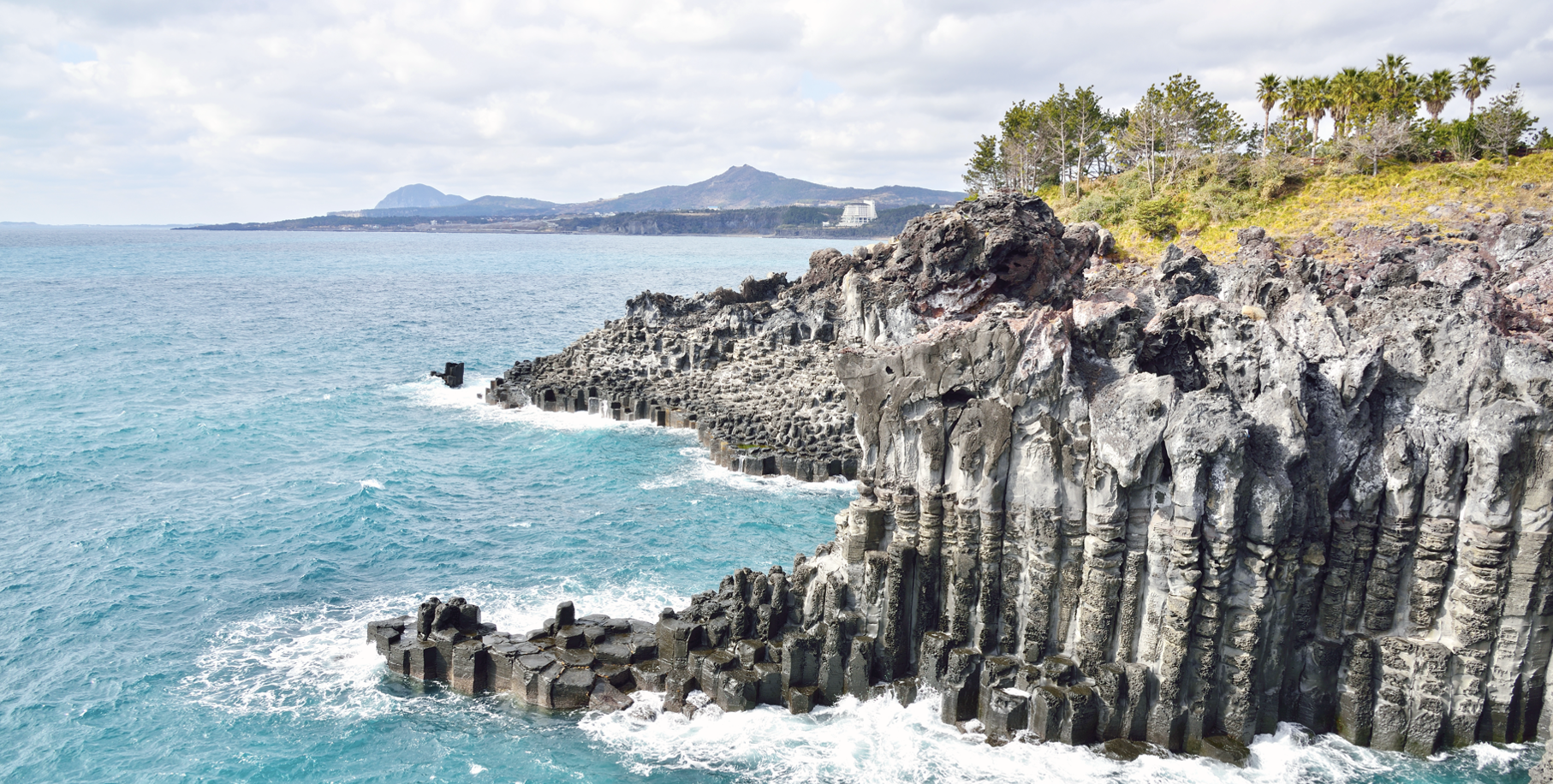South Korea’s travel industry has witnessed a significant shift as more locals opt for domestic travel. South Koreans are favoring lesser-known destinations over traditional tourist spots, reshaping travel preferences and offering the local tourism sector opportunities to promote hidden gems and unique experiences.
Read our Korea’s consumer trends report
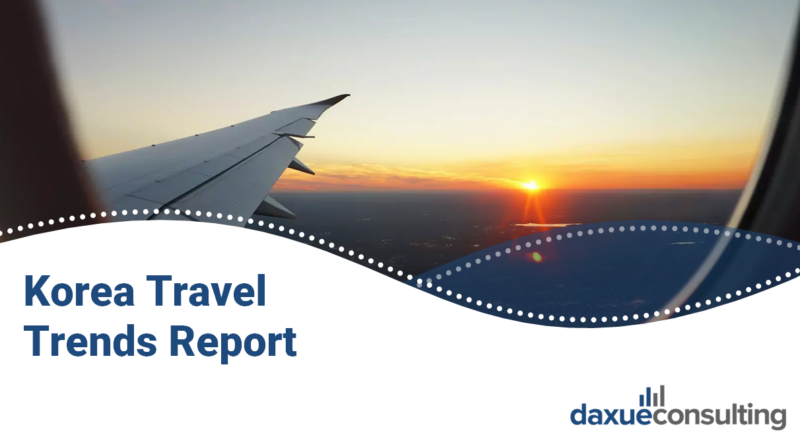
Travel themes: Unveiling travel experiences in South Korea
Hobbies inspire travel experiences
Hobbies are becoming a primary reason behind travel decisions. Among age groups, Gen Z, followed by the Baby Boomers in South Korea, showed the highest willingness for traveling based on their hobbies. They engage in hobby-centric trips, exploring themes like “sports” with activities such as golf, hiking, and tennis; “gourmet experiences” involving café and restaurant tours; and camping, which includes car camping adventures.
Among these hobby-driven travel trends, golf-themed trips stand out. Golf has been usually associated with older, businessmen. However, young people have shown particular interest in planning vacations around golf resorts and events. This had sparked a demand for golf equipment and apparel. In fact, according to Golf Datatech and Yano Research, Korean golfers boasts the highest per capita spending on golf equipment and apparel among golfers worldwide. The growing interest in golf has captured attention of global brands, prompting ventures like Lanvin Blanc and Titleist Apparel to introduce or enhance their golf wear offerings in Korea. French luxury fashion house Lanvin Blanc, for example, licensed its brand to Hyundai Department Store’s fashion retail arm in 2022.

While Koreans often engage in hobby-centric trips with friends, family, or close acquaintances, there is a growing trend of individuals exploring opportunities to connect with new travel companions. Platforms such as Frientrip (Frip) facilitate these connections, allowing individuals to connect with others who share similar interests in recreational activities. These activities span from one-day classes to outdoor adventures, sports, arts, and hobby programs.
Rural roamers: Navigating the trend of authentic countryside experiences
“Country vacations” are gaining popularity for its healing benefits, offering a tranquil escape from urban hustle. Since the COVID-19 pandemic, rural travel has bolstered South Korea’s tourism industry, witnessing a surge in interest in authentic countryside experiences. The rise of trends like “Choncance (촌캉스)” on social media showcases the popularity of staying in countryside houses, relishing local cuisine, and participating in traditional rural activities. This trend is notably embraced by the South Korea’s MZ Generation, who frequently share their brief rural vacation experiences on social media and Naver blogs.
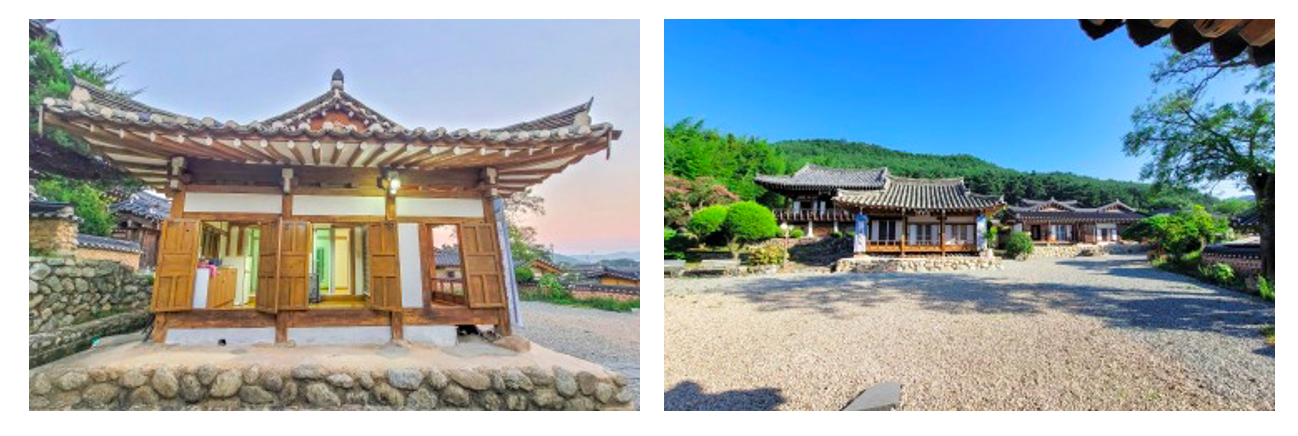
In the increasing trend of country home stays, travel agencies like “Country Tour” have introduced travel packages designed to offer genuine rural experiences. “Night in the Country,” for example, includes accommodation and country-related activities, such as farming or sweet potato digging. According to Country Tour Manager Kim Min-jeong, non-face-to-face travel and private accommodations, including single-day stays, have seen a 150% increase in 2021 compared to the previous year.
Long-term stay travel: Navigating the rise of work and travel
Interest in long-term stay travel has increased, with the emergence of “workcations” where individuals can work while staying in travel destinations. Many Koreans aspire to balance relaxation and work simultaneously. Among different generations, Gen Z, Young Millennials, and Baby Boomers rank as the top three generations in South Korea showing a heightened interest in “workcations.”
In the picturesque island of Jeju, Frip manages a workspace called “Greenhouse”. People can work while enjoying a view of the ocean, visiting a museum, taking a yoga class, and partaking in various other relaxing activities. According to the company’s representative in 2022, the sales of its Jeju-based work-related products experienced a surge of nearly threefold compared to the previous year.
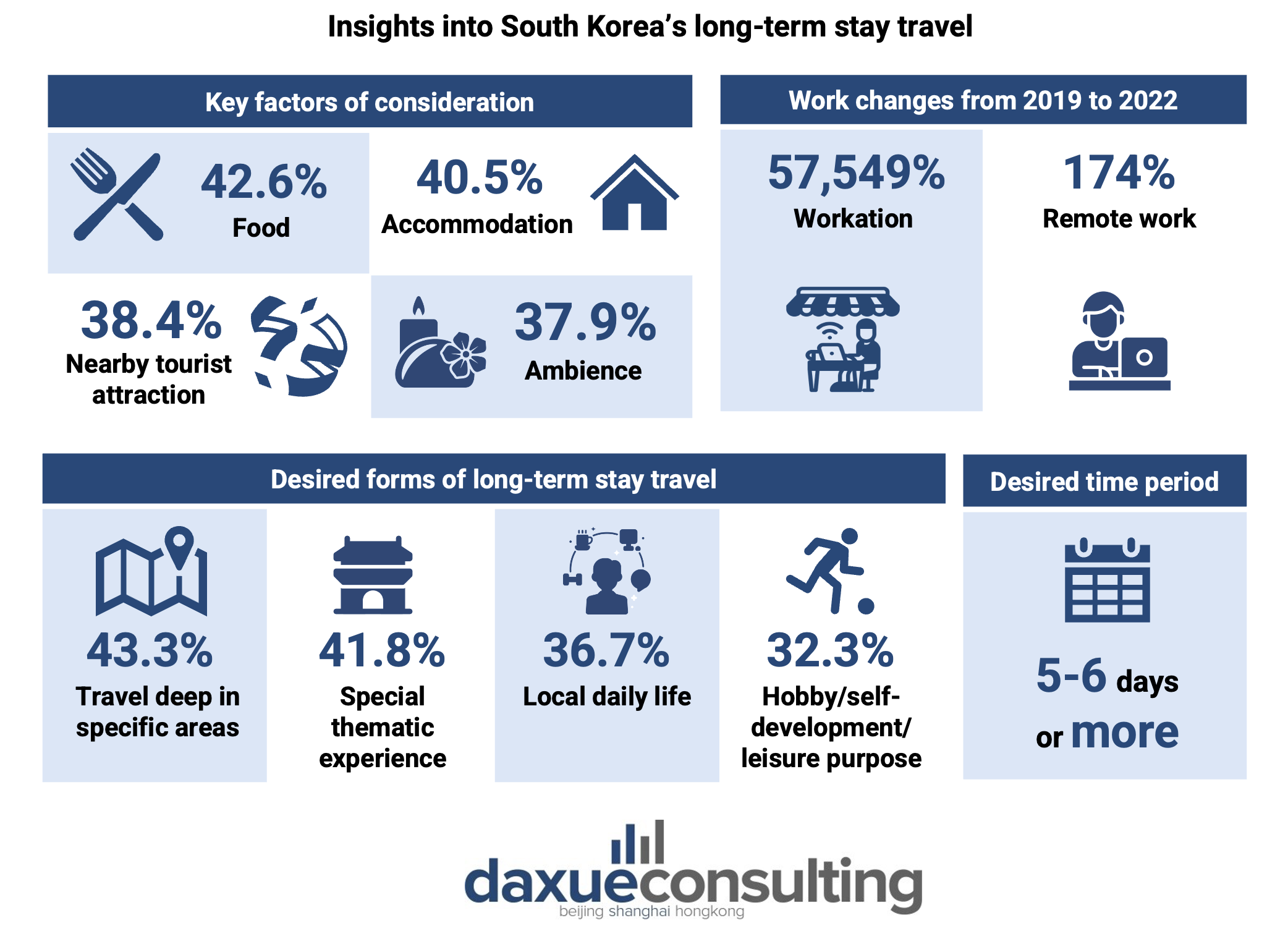
Traveling transition: Macro trends in South Korea’s travel industry
Senior travel: Active exploration in aging South Korea
Amid South Korea’s aging population, the elderly are becoming are exploring different ways of spending time and money on themselves. Contrary to the common assumption that the elderly prefer a more sedentary lifestyle, senior travel in South Korea is experiencing a significant uptick. In 2021, individuals aged 50 and above accounted for 30.8% of travel consumption among Koreans.
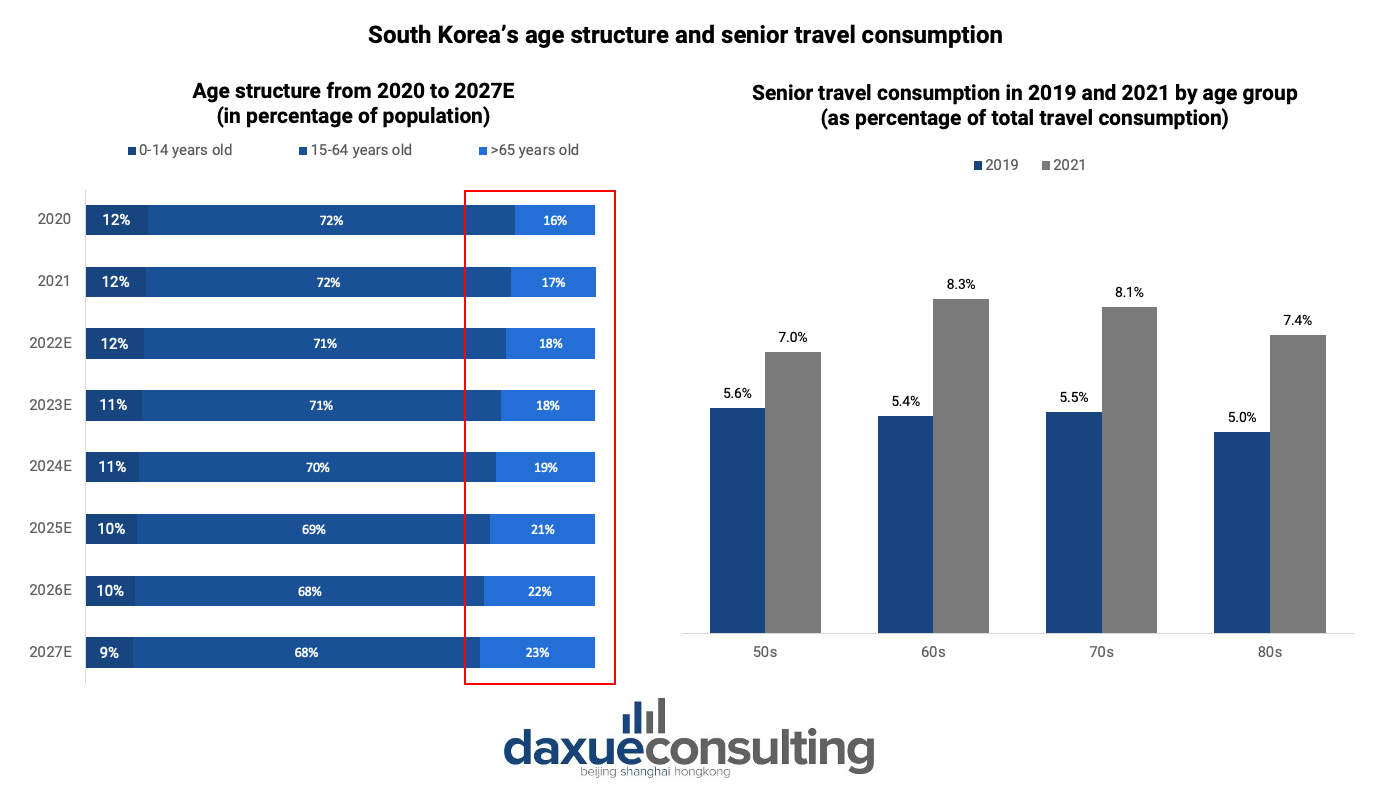
Traveling alone: The rise of single-person households in Korea
The number of single households in South Korea is on the rise, with Korea Statistics estimating around 7.9 million by 2027. Notably, individuals in their 60s and older constitute a higher proportion of single-person households. South Korea’s travel trends reflect this trend, as solo travel surpasses group travel as the primary leisure method. According to the 2021 National Leisure Activities Survey, 63.6% of respondents prefer engaging in leisure activities alone.
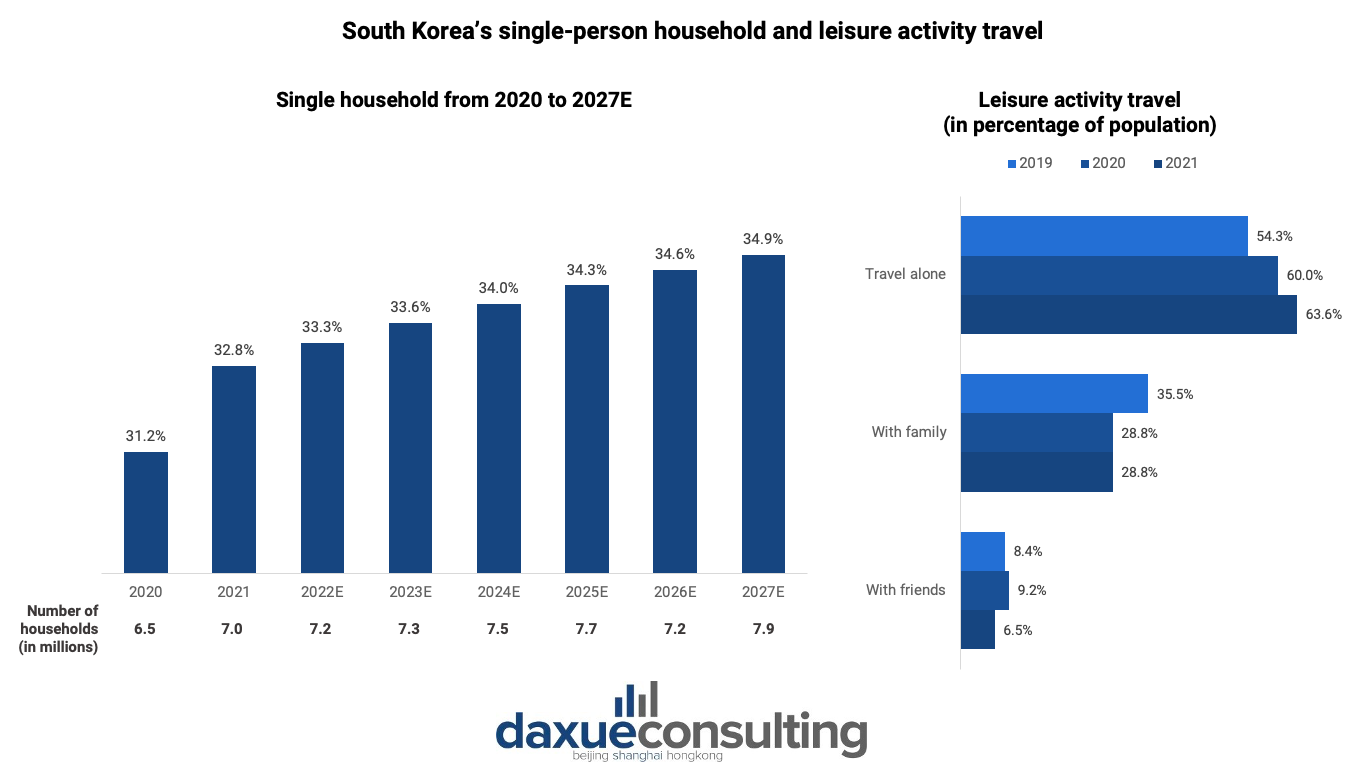
Sustainable journeys: Exploring environmental consciousness in travel
With the ongoing climate crisis, there’s a heightened focus on environmental issues, leading to increased adoption of everyday practices like zero waste, upcycling, and plogging, which involves picking up trash while jogging. This eco-conscious mindset extends to travel preferences, with a strong desire for waste reduction during trips, followed by an interest in recycling at destinations. Public transportation also became the preferred mode of travel for those seeking environmentally friendly options, with a rising interest in non-motorized alternatives like walking or cycling.
A tech-savvy expedition: The rise of YouTube and social media for travel planning
Koreans are increasingly relying on social media and less on travel agency platforms when planning their trips. YouTube and the social media accounts of travel influencers have become particularly popular. Moreover, Naver Blog and Naver Café continue to be used as well. They seek recommendations for accommodations, dining, and activities. YouTube stands out because it provides more vivid and personal stories integrated into the videos, rather than just introductions and explanations about different places, which can be considered dry.
Afterward, many use apps to facilitate their trips. For booking accommodations, popular international platforms such as Agoda and Booking.com are commonly used. Yanolja (야놀자), the first lodging service platform from South Korea, is another significant player in the Korean holiday planning scene. Known for its user-friendly interface, it provides convenient access to travelers seeking suitable lodging. The platform features reviews, ratings, and photos of accommodations, aiding users in making informed decisions. Additionally, Yanolja frequently offers enticing coupons for more price-sensitive users.
South Korea’s travel industry: The changing landscape of leisure
- There is a diminishing importance of destination popularity in domestic tourism. Instead, South Koreans are now emphasizing tangible experiences like local food, festivals, and cultural immersion resulting in the increasing trend of local and rural tourism.
- Workcation’ trend emerges, combining work and travel and short-term stays gain popularity, especially among Generation Z and Young Millennials.
- Despite South Korea’s aging population, individuals aged 50 and above accounted for 30.8% of travel consumption in 2021, enjoying active and culturally enriching experiences.
- The increase in single-person households, especially among those in their 60s and older, has contributed to a surge in solo travel.
- Heightened environmental consciousness influences travel choices which resulted in a focus on waste reduction, recycling, and eco-friendly transportation.
- Koreans heavily rely on YouTube and social media channels of influencers for travel research.


